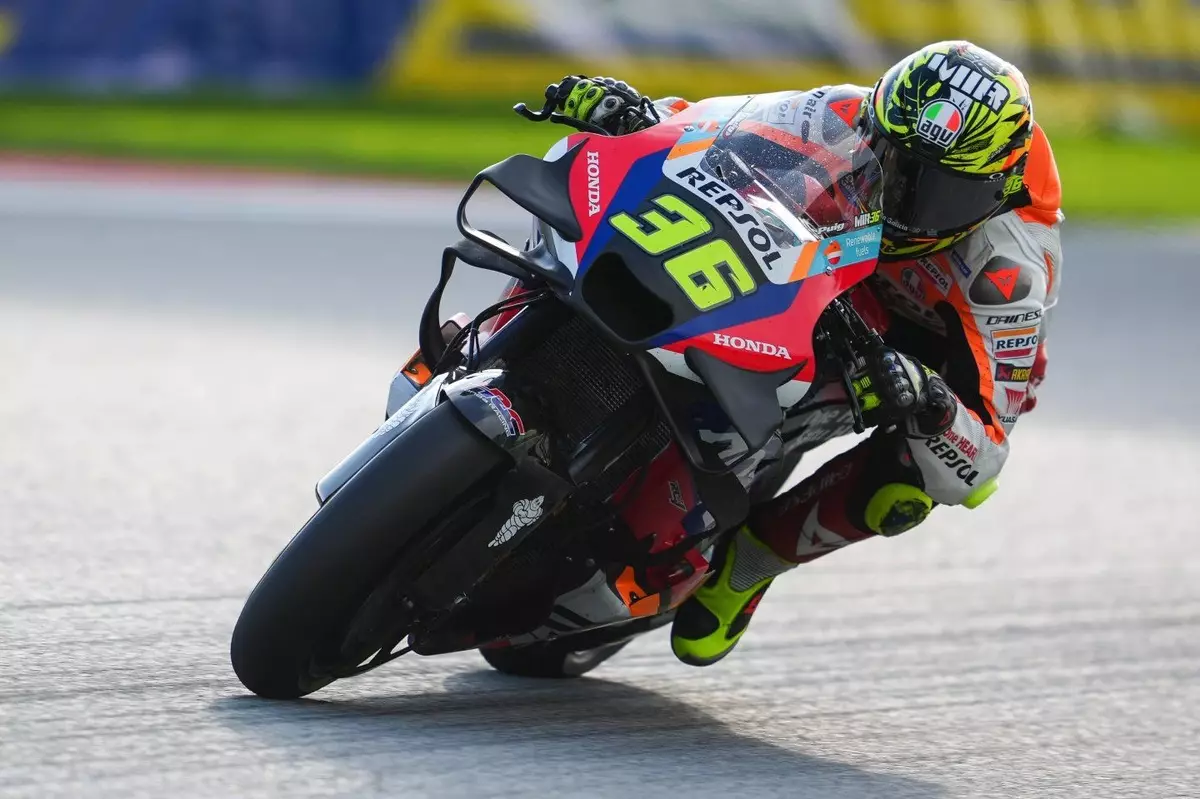The Challenges of Honda in MotoGP A Rider’s Perspective on Concession Changes
As a long-time fan of MotoGP, there’s something about the roar of engines and the thrill of speed that captures my heart every season. This year, however, has been particularly intriguing as Honda navigates through some tough challenges. It’s not just the races that have caught my attention, but the behind-the-scenes struggles that define what we see on race day. Being an ardent follower, I couldn’t help but dive deeper into what’s happening with Honda and the new concession changes.
When I first heard about the concession system updates for 2024, I was hopeful just like many other fans. The idea was to level the playing field a bit and give teams like Honda a chance to close the gap with European manufacturers who have dominated recently. But as the season unfolded, it became evident that things were not going as planned. It’s been quite a journey trying to understand why these changes haven’t had the desired impact.
My curiosity led me to follow Joan Mir’s insightful commentary on the situation. As a factory HRC rider, his perspective sheds light on the real issues at hand. It’s clear that simply having more opportunities to test and tweak isn’t enough if fundamental problems remain unsolved. This realization resonated deeply with me, making me appreciate even more the complexity of this sport I love.
Key Takeaways
- MotoGP introduced concession changes in 2024 to level the playing field.
- Honda’s performance hasn’t significantly improved despite these concessions.
- Joan Mir highlights the need for fundamental bike design improvements.
- The importance of a robust test team is crucial for future success.
The Revised Concession System
The updated concession system introduced in 2024 was designed with high expectations. It aimed to bridge the performance gap between Japanese giants like Honda and Yamaha and their European counterparts. By allowing more freedom in engine specifications and additional private testing days, it seemed like Honda was being handed golden opportunities. However, the reality turned out to be quite different as their season progressed without reflecting these optimistic prospects.
Despite these concessions, Honda found itself struggling to climb up the leaderboard. Joan Mir pointed out that accumulating only 75 points compared to 185 points from previous years was a stark indication of underlying issues. The changes intended to boost competitiveness have not yielded tangible results, sparking debates among analysts and fans alike about their effectiveness. It’s a reminder that regulatory adjustments alone cannot resolve deep-rooted challenges.
The Complexity of Racing Challenges
Joan Mir’s candid observations bring attention to a critical aspect often overlooked amidst technical regulations—the inherent engineering and design of the motorcycle itself. He emphasized that without addressing these core aspects, any changes in rules would offer little benefit. His insights suggest that while concessions provide a framework for potential growth, they cannot replace the necessity for meticulous engineering improvements and strategic innovation within Honda’s racing setup.

The relentless testing schedules also contribute significantly to rider fatigue and performance issues. Mir talked about how increased testing did not translate into immediate race day benefits due to insufficient recovery time for riders. This insight opens up an important dialogue about balancing testing demands with rider well-being—a factor crucial for maintaining high performance throughout grueling racing seasons.
The Need for Enhanced Testing Teams
An essential aspect highlighted by Mir is the role of Honda’s test team in navigating these challenges effectively. Strong support from a capable test team can pave the way for significant advancements by allowing thorough experimentation and refinement of strategies before they hit the racetrack. The absence of such support can severely hinder a team’s ability to innovate and adapt quickly—key elements needed to regain competitive footing in MotoGP.
Recognizing this necessity, Honda is taking proactive steps toward enhancing its test team ahead of the 2025 season. With experienced riders like Aleix Espargaro set to join forces, there’s hope that new insights will bolster development efforts. Such strategic additions are seen as vital moves towards building a robust framework where quality testing aligns closely with racing demands—a vision echoing Mir’s thoughts on effective progress through quality over quantity.
Final Thoughts
As we look forward to another exciting season in MotoGP, it’s important to consider what truly drives success on this grand stage. While regulatory changes like concessions aim at creating fairer competition landscapes, real breakthroughs require addressing more profound design and strategic challenges inherent within teams like Honda. Joan Mir’s perspectives serve as valuable reminders of this intricate balance necessary for reclaiming glory amidst ever-evolving dynamics in motorsport racing.

The journey towards triumph involves more than just favorable regulations; it demands relentless commitment from all stakeholders involved—riders, engineers, strategists—to innovate continuously while adapting swiftly under pressure-packed environments characteristic of MotoGP competitions today.
MotoGP
Honda Racing Corporation
Joan Mir
Concession Changes


Leave a Reply